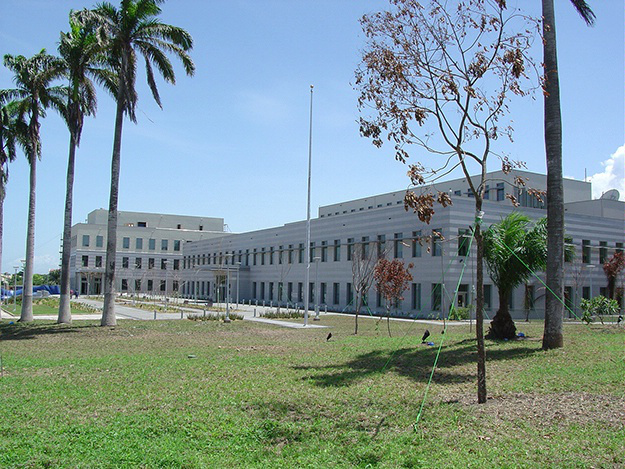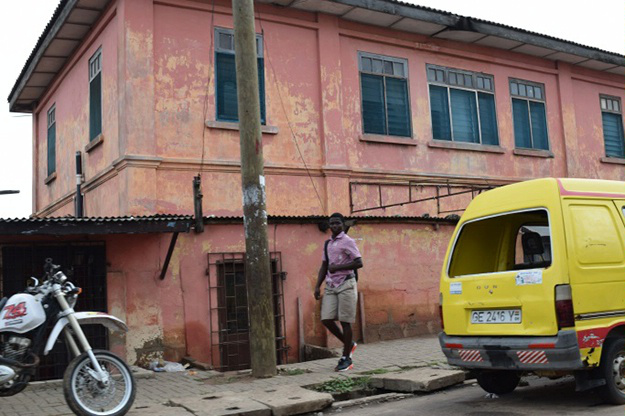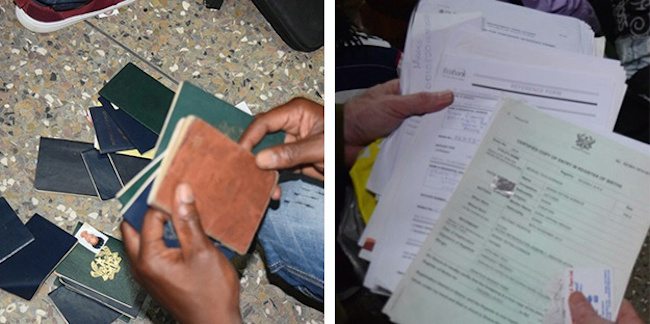Scammers Ran A Fake U.S. Embassy In Ghana For A Decade Before Being Shut Down Image courtesy of U.S. State Dept.
The U.S. Embassy in Ghana is a large, secured office building in the bustling West African port city of Accra, but for a decade scammers convinced some folks that their humble two-story structure — without security fencing, U.S. military guards,… or Americans of any sort — was indeed the office of the U.S. Ambassador to Ghana.
According to the State Department, Ghanaian and Turkish organized crime members operated the “embassy” three days a week, selling bogus visas and other government documents. While the building looks nothing like the actual embassy, the scammers did fly a U.S. flag outside and decorated the office inside with a photo of the president.
The scammers couldn’t even be bothered to staff the building with American con artists. Instead, the “consular officers” were just Turkish citizens who spoke English.

The actual U.S. Embassy in Accra

The not-an-embassy in Accra
Officials at the legitimate U.S. Embassy were tipped off to the faker — and a similar operation pretending to be a Dutch embassy — as part of a different fraud investigation in the area. Investigators then worked with Ghanaian law enforcement to shut down the play embassy, along with two related operations that were used in the scam.
This fraud was able to go unstopped for so many years because the scammers paid off certain authorities to turn a blind eye, and because they didn’t find their customers locally.
Instead of allowing walk-in visits to the not-an-embassy, the fakers would find their customers out in more remote regions of Ghana, advertising on billboards and through flyers. Customers would then be shuttled into Accra and put up at a nearby hotel.
For thousands of dollars, customers could obtain visas, bank records, birth certificates, and other documents. After authorities shut the embassy down, they found 150 passports from 10 different countries, along with legitimate and counterfeit visas from the U.S., India, and South Africa.

Fake documents recovered from fake embassy.
It’s believed that more items would have been turned up if it hadn’t been for the intervention of a corrupt local attorney, says the State Department.
Authorities attempted to raid a dress shop alleged to house the industrial sewing machine used to recreate the binding on the passports, but this corrupt attorney falsely told detectives that they could not access the building because it was currently involved in a separate court case.
By the time this claim was shown to be a lie, the State Dept. says that — with the help of corrupt officials — the scammers had already been bailed out and moved their production facility elsewhere.
While this scam was obviously targeting Ghanaians and other West African residents — as opposed to U.S. citizens traveling in Ghana — remember that you can always find the location of an American embassy, consulate, or diplomatic office at USembassy.gov.
Want more consumer news? Visit our parent organization, Consumer Reports, for the latest on scams, recalls, and other consumer issues.

